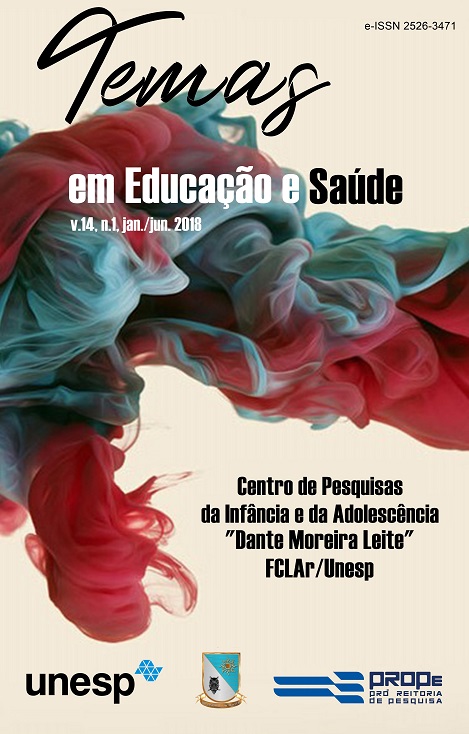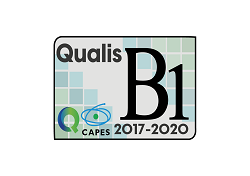Alfabetização e africanidades: experiências formativas no curso de extensão ler e escrever na escola
DOI:
https://doi.org/10.26673/rtes.v14.n1.2018.10632Palavras-chave:
Alfabetização, Ensino de leitura e escrita, Africanidades, Formação de professores.Resumo
Esse artigo apresenta uma prática formativa de professores alfabetizadores no "Curso de Extensão ler e escrever: articulando saberes, construindo práticas", realizada a partir de um tema que vem ganhando cada vez mais destaque na área da educação, a saber, as Africanidades, dando ênfase às marcas da cultura africana na construção da cultura brasileira. Socializa-se o potencial dessa ação na formação de professores alfabetizadores e de licenciandos em Pedagogia, que atuam como parte da equipe de execução do curso. Uma vez na semana, estudantes e docentes da Pedagogia e professores das escolas públicas do Rio de Janeiro se reúnem a fim de discutir questões relacionadas à docência na alfabetização, leitura e escrita e à construção de práticas inovadoras em alfabetização, de tal modo que a formação inicial e continuada de professores seja construída em diálogo com esses sujeitos. O tema “Africanidades” foi abordado na perspectiva da valorização das raízes da cultura brasileira de origem africana, discutindo-se as relações étnico-raciais, as concepções relativas aos preconceitos raciais, em nome do urgente e necessário respeito aos diferentes modos de ser, de viver e conviver. Destaca-se, assim, uma experiência promissora de trabalho com essa temática a partir de duas propostas distintas: construção do Panõ Africano e Confecção da Boneca Abayomi, atividades que envolveram diferentes linguagens, tais como leitura, desenho, pintura e artesanato. Essas ações demonstraram grande potencial formativo na perspectiva de alfabetização em que a integração curricular, bem como a linguagem como interação humana são pressupostos centrais
Downloads
Referências
CHARLOT, B. Da relação com o saber: elementos para uma teoria. Porto Alegre: Artmed, 2000.
CHARLOT, B. Relação com a escola e o saber nos bairros populares. Revista Perspectiva, v. 20, n. especial, jul./dez., 2002.
FREIRE, P. Pedagogia da autonomia: saberes necessários à prática educativa. São Paulo: Paz e Terra, 1996.
GOULART, Cecília.; GONÇALVES, Angela Vidal. Aspectos semióticos da aprendizagem inicial da escrita. In: GOULART, C. M. A.; WILSON, V. (orgs.). Aprender a escrita, aprender com a escrita. São Paulo: Summus, 2013, p. 22-42.
IBGE. Censo Demográfico 2010 – Características Gerais da População. Resultados da Amostra. Disponível em: http://www.censo2010.ibge.gov.br. Acesso em: 23 de out. de 2017.
JOBIM e SOUZA, S. Infância e Linguagem: Bakhtin, Vygotsky e Benjamin. Campinas/SP: Papirus, 2012.
LARROSA, J. Notas sobre a experiência e o saber de experiência. Revista Brasileira de Educaçao, n. 19, p.20-28, 2002.
SANTOS, B. de S. A gramática do tempo: para uma nova cultura política. São Paulo: Cortez, 2006.
SILVA, M. da P. Educação intercultural: a presença indígena nas escolas da cidade e a lei 11.645/2008. In: SILVA, E.; SILVA, M. da P. A temática indígena na sala de aula: reflexões para o ensino a partir da lei 11.645/2008. Recife: Ed. dos Organizadores, 2016. p.57-84
SILVA, P. B. G. e. Africanidades Brasileiras: esclarecendo significados e definindo procedimentos pedagógicos. Revista do Professor, n. 19, v. 73. Porto Alegre, jan./mar., 2003, p. 26-30.
VYGOTSKY, L. S. A formação social da mente. 2. ed. Trad. José Cipolla Neto, Luis Silveira Menna Barreto e Solange Castro Afeche. São Paulo: Martins Fontes, 1988.
Downloads
Publicado
Como Citar
Edição
Seção
Licença
Os manuscritos aceitos e publicados são de propriedade da Temas em Educação e Saúde. Os artigos publicados e as referências citadas na Temas em Educação e Saúde são de inteira responsabilidade de seus autores. É vedada a tradução para outro idioma sem a autorização escrita do Editor ouvida a Comissão Editorial.







